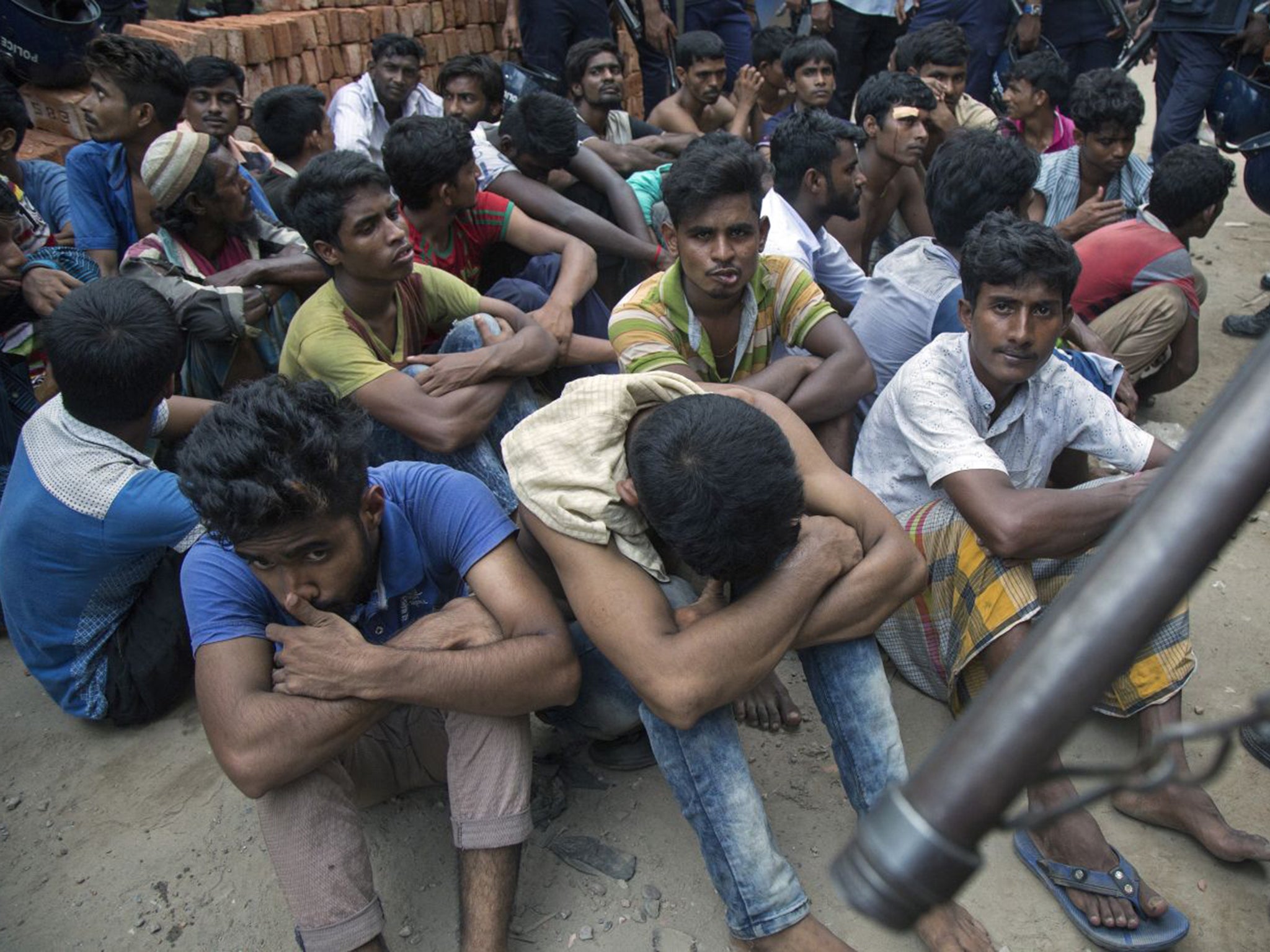At least 86 killed and 7,000 arrested in Bangladesh anti-drugs campaign
Prime Minister Sheikh Hasina approved an anti-narcotics campaign in early May

Your support helps us to tell the story
From reproductive rights to climate change to Big Tech, The Independent is on the ground when the story is developing. Whether it's investigating the financials of Elon Musk's pro-Trump PAC or producing our latest documentary, 'The A Word', which shines a light on the American women fighting for reproductive rights, we know how important it is to parse out the facts from the messaging.
At such a critical moment in US history, we need reporters on the ground. Your donation allows us to keep sending journalists to speak to both sides of the story.
The Independent is trusted by Americans across the entire political spectrum. And unlike many other quality news outlets, we choose not to lock Americans out of our reporting and analysis with paywalls. We believe quality journalism should be available to everyone, paid for by those who can afford it.
Your support makes all the difference.At least 86 people have been killed and 7,000 arrested in Bangladesh after police launched a crackdown on drug trafficking this month, officials said.
Prime Minister Sheikh Hasina approved the anti-narcotics campaign in early May to tackle the spread of ya ba, as methamphetamine worth an estimated $3 bn (£2.25 bn) annually, government officials say.
The drug is sourced from Myanmar’s northeast and smuggled into neighbouring Bangladesh and attempts to tackle the problem have prompted fears from rights activists of a Philippines-style war on drugs.
“In recent times, drug dealing has increased and we feel that people should be alert and motivated to act against it,” said Devdas Bhattacharya, a senior police official. “The process will continue until it’s eradicated totally”.
He said police arrested six people on Sunday, including a 12-year-old boy from Myanmar’s Rohingya Muslim community, who had carried 3,350 ya ba tablets to the capital, Dhaka.
Bangladesh has said an influx last year of Rohingya fleeing Buddhist-majority Myanmar is partly to blame for soaring methamphetamine use. But many Rohingya say their young people are being pushed into crime because they cannot legally work or, in many cases, get access to aid.
The 86 deaths occurred when police defended themselves in confrontations with suspected drug traffickers, said Mufti Mahmud Khan, a director of the police Rapid Action Battalion.
“It’s their legal right to save themselves from the attack,” Mr Khan said.
Human rights activists are worried the Bangladesh campaign is taking a page from the Philippine drugs war, in which thousands of people have been killed in the past two years.
“The Sheikh Hasina government says it is a protector of human rights, so it should reform its domestic record, set an example, instead of wishing to be compared to an abusive regime,” said Meenakshi Ganguly, South Asia director for Human Rights Watch.
Ms Ganguly said the government “should heed concerns and allegations by families and activists that several of these deaths could be extrajudicial killings”.
Interior minister Asaduzzaman Khan rejected the rights group’s allegations and denied that police had carried out any extra-judicial killings. He said dozens of police had been injured in anti-drug operations.
The opposition Bangladesh Nationalist Party (BNP) said the anti-drugs drive was part of a campaign to intimidate it but Mr Khan also rejected that, saying ruling party members would not be spared if found guilty of drug crimes.
“We are determined to save our young generation from the curse of drugs,” he said.
Agencies contributed to this report
Join our commenting forum
Join thought-provoking conversations, follow other Independent readers and see their replies
Comments